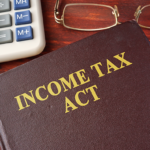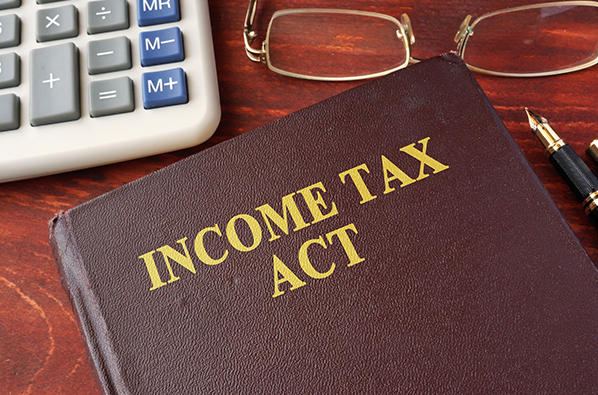When you initially learn how to do your taxes, the process can be overwhelming. Using the slab system, individuals can calculate their income tax in India. Depending on the slab your income comes under, a certain percentage of tax is payable. Taxpayers can choose between the new income tax slab rates and the existing (old) ones.
Both the tax slabs, the new one and the existing one, have their own set of benefits. It is advised that you use an income tax calculator and calculate your taxes using both the tax slabs. Later, select the most beneficial one. When you are doing your taxes, you will come across certain terminologies. It is important to know their meaning to file your tax correctly. Here are some common income tax-related terms along with their meaning:
Gross Total Income
When you file your tax returns, you will come across Gross Total Income (GTI). Income from salary, house property, profession, capital gains, profits from business, and income from other sources are all included in GTI. Individuals can calculate their GTI after including exemptions relevant to the income, like HRA, eligible allowances, and interest on a home loan.
Net taxable income
Under the Income Tax Act of 1961, there are certain exemptions and deductions that one can claim on their gross total income. After these deductions are computed, the income that remains is the net taxable income. You can check your tax payable on both, the new income tax slab system and the old one, to see what benefits you more.
Income Tax Return (ITR)
ITR is the form that you fill out and submits to the Income Tax department. There are seven different types of ITRs, ITR1, ITR2, ITR3, ITR4, ITR5, ITR6, and ITR7- categorized on the basis of sources of income, income amount, whether you are an individual, charity, or an organization, and so on.
Assessee
An Assessee is an entity that is liable to pay income tax under the Income Tax Act. It can be an individual, Hindu Undivided Family (HUF), Body of Individuals (BOI), Association of Persons (AOP), Limited Liability Partnerships (LLPs), companies, any artificial judicial person (AJP), and local authority.
Assessment year (AY)
Assessment year refers to a duration of twelve months, starting from the 1st of April of one year and ending on the 31st of March of the next year. It is also known as the financial year.
Previous year (PY)
The previous year is the financial year before the assessment year.
Tax deduction at source (TDS)
TDS is the tax that is deducted before the receiver gets the payment. Earnings from salary, commission, consultation fees, interest gained on bank deposits, professional fees, and rent payments are subjected to TDS as per the Income Tax Act. These earnings attract TDS that is deducted on a TDS certificate or Form 26A. The assessee can show this form or certificate while filing tax returns to claim a credit on the tax already paid.
Form 26AS
Form 26AS reflects the tax deducted or collected by an entity along with the Permanent Account Number (PAN). It contains merged information about tax collected at source, tax deducted from all sources, advance tax paid by the assessee, regular assessment tax, self-assessment tax paid, and details of refund if any. This form acts as a tax credit statement.
Form 16
Your employer issues a Form 16 certificate that contains all the information you need for filing your income tax return. Form 16 is mainly divided into Part A and Part B. Part A contains professional information of both the employer and employee, like their PAN, Tax deduction Account Number (TAN) of the employer, and the amount of tax deducted. Part B contains details of salary paid, other incomes, deductions, and exemptions that were availed.
Advance tax
If you find it difficult to do taxes in a lump sum for the entire year at once, you can choose to pay taxes in advance. You can pay taxes in four installments dating on or before 15th June, 15th September, 15th December, and 15th March instead of a lump sum at the end of a given financial year. Use an income tax calculator to know the tax payable and pay advance tax in installments accordingly. Any person whose tax liability is more than Rs.10,000 can avail of the advance tax option. Also, anyone who has opted for the presumptive taxation scheme u/s 44AD or 44ADA can avail of the advance tax option.








